There are so many things women need to worry about when carrying a child and one of the major concerns is what to drink when pregnant.
When you’re expecting, you’ll learn that there are many lifestyle changes to which you’ll have to temporarily adapt.
Finding out what to drink when pregnant, a.k.a. what’s safe and what’s not, as well as healthy food habits are probably going to impact you the most.
Having to give up drinking alcohol, coffee, and coke, as well as staying away from eating some heavily processed meats, etc. might put a damper on your enjoyment of both food and drink, but don’t worry, it’s only hard in the first few weeks while you get used to it.
It’s the research period that ends up taking up most of your time and the joy out of such a basic function and it’s the fear that makes you so overly cautious.
That’s why I’ve written this article for you girls today, because I want to help translate that period of trial and error into an easily digestible text that you can use as a quick reference guide in case you forget.
Better to have it all in one place than having to remember everything and messing up by accident, right?
With that said, let’s figure out what to drink when pregnant to help maintain a healthy pregnancy.
Why You Need To Learn What To Drink When Pregnant And What To Avoid
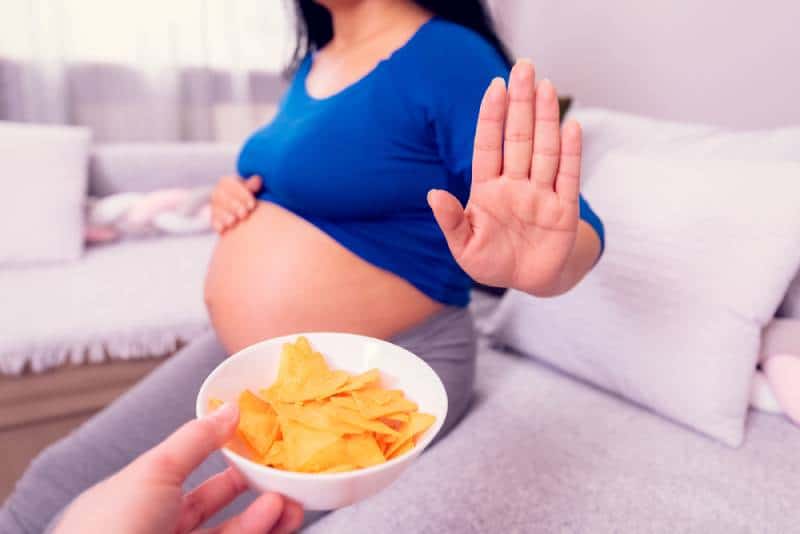
While nobody is going to stop you from eating and drinking your fill during your pregnancy and you might not feel the effects of some of the foods, know that the fetus inside your womb does.
Developing babies can’t tolerate everything we put inside our bodies and some of these things might end up severely impairing your future child’s physical and mental development through various potential complications and birth defects.
And, in some severe cases, it can even end up as a potentially grave risk to the child putting the baby in distress and possibly causing a stillbirth.
Another problem that often develops in a pregnant woman is how differently your digestive system reacts to the food you consume.
Something that might have been a favorite comfort food or a favorite dish, in general, might be the source of a heavier morning sickness than usual or even food poisoning if you’re not careful enough.
Some of the food you might’ve been used to eating before your pregnancy may also simply not agree with your body at all.
You could end up suffering from either constipation or diarrhea, potentially leading to bouts of very uncomfortable stomach aches.
The same goes for drinks which is why proper drink and food safety is very important for your own health care and for the health of your baby.
A healthy diet of both food and drink is important during this prenatal period to help keep the baby’s growth in your womb and the baby’s development in the postnatal period as uninhibited and as healthy as possible.
I know that you’ll get plenty of advice from your local moms, your friends, and even your own mother on the dietary rules they followed, but it’s not always that easy.
While I am someone who often tells you that other moms, especially experienced ones, are a good source of answers for any of your questions, you might want to ignore that piece of advice this time around.
Every mamma’s body is unique and the same foods can have vastly different effects on each individual.
As always, hormones are to blame – among other factors.
The erratic spikes of hormone levels lead to various imbalances in our bodies and sudden drink and food allergies, cravings, and food aversions are likely to pop up during this period.
They usually only last during the pregnancy and fade off after a few weeks postpartum, but some might end up being pesky enough to stick around.
This is why you should rely on your obstetrician, nutritionist, or any other qualified public health official for proper advice if you find yourself confused.
They’re the ones who are most likely to know the right answers for you and your future child as to what sort of healthy eating and drinking you should be doing before your due date.
11 Drinks You Should Be Sticking To During Your Pregnancy
1. Water
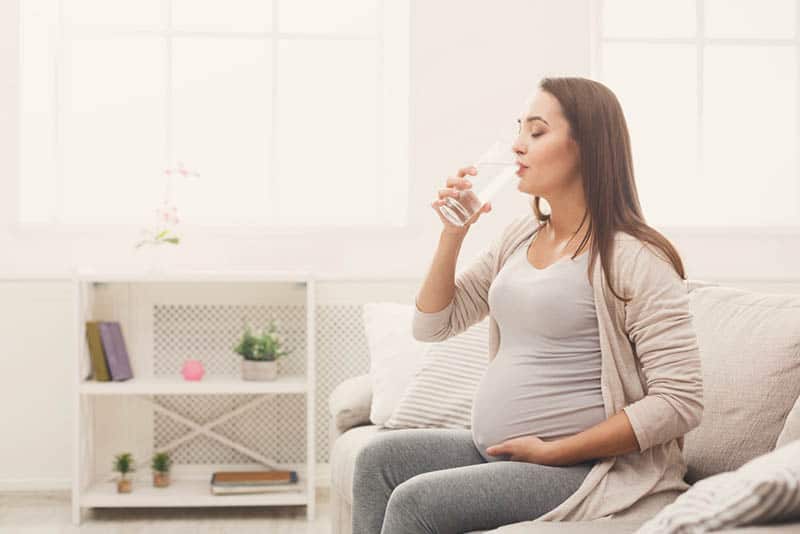
Arguably the most obvious choice when wondering what to drink when pregnant, or during any other time for that matter, is water.
But not just any water, filtered drinking water that’s been freed of all harmful bacteria that may cause unwanted stomach problems for you or carry some sort of illness.
You don’t want to be getting sick during pregnancy, trust me. You already have enough on your plate as it is!
Our bodies are made out of 60% water but we expel it through our daily number ones and twos, as well as in the form of sweat.
It’s an important tool in helping the body get rid of the toxins and wasteful material that accumulates in our bodies and the reason why it’s always important to stay hydrated.
And when you’re pregnant, you need to drink even more than the 72 ounces that you’re normally used to for the sake of the baby.
While it may seem like a lot at first, it’s only about 8 ounces more and most of it doesn’t have to come from water alone.
You’re likely to get used to it in the middle of your first trimester already, so don’t fret too much about it.
Before we move on, another very good reason as to why water is very good for pregnant women is because proper hydration helps prevent any breastfeeding problems related to milk supply when you finally deliver your precious angel.
2. Pasteurized milk and orange juice
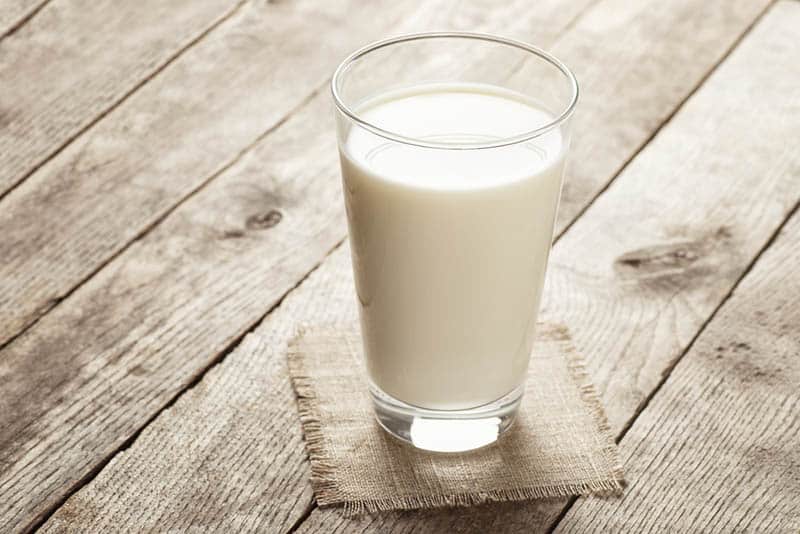
You’re likely going to see the term “pasteurizing” a lot through this article, so let’s clarify what it means.
Pasteurization is the process of heating a liquid to kill all of the harmful bacteria lingering in it before allowing it to cool and then packaging and selling it on the market.
That’s why you’ll find the word “pasteurized” on the labels of many milk and juice cartons. These are the ones you should be looking for in the first place as they’re a great source of vitamins and are safe for consumption.
Plus, they’re there as an alternative to just drinking water, something to help surprise your taste buds every now and again.
And the best part is that both milk and orange juice (if the juice has been fortified) are great sources of calcium to help keep those bones sturdy in both you and your growing little one.
In the case of orange juice, you might also find that it’s a great solution in helping lower your blood pressure because of the potassium that it contains.
High blood pressure is a common issue in pregnant women due to the expansion of our blood vessels and the faster blood flow, once again, thanks to our hormones and the pregnancy itself.
As mentioned earlier, the juice itself contains an abundance of vitamins, especially vitamin C which helps absorb other helpful vitamins (including prenatal vitamin supplements), minerals, and nutrients into the body a lot easier.
Plus, it helps reduce the effects of morning sickness and any other forms of nausea.
But, it’s not just orange juice. Plenty of other juices can be used too, though the former ends up being the best and most helpful if you’re looking for efficiency over variety.
As for the milk, it’s a more direct source of calcium as well as protein in some cases, though it is filled with saturated fats most of the time.
Luckily, non-fat and low-fat milk variants still work if you want to avoid unnecessary weight gain, as does soy milk if you’re a vegan and looking for an alternative.
It’s something that belongs to one of the five major food groups and it’s recommended to have a daily intake of about 2-3 cups of it during your pregnancy, especially in the third trimester.
That said, it can be through other dairy products as well, not just pure pasteurized milk, so make sure to vary it up if you end up getting sick of drinking milk.
One final thing to note is that during a pregnancy, any of you mammas unfortunate enough to have been struck with lactose intolerance before might find that the effects of it may have lessened or completely disappeared.
That’s because a pregnant woman’s body becomes a bit more adjusted to digesting lactose during the pregnancy period so you might want to give dairy a try without having to rely on beano and prolactin to keep you from suffering any ill effects.
3. Kefir
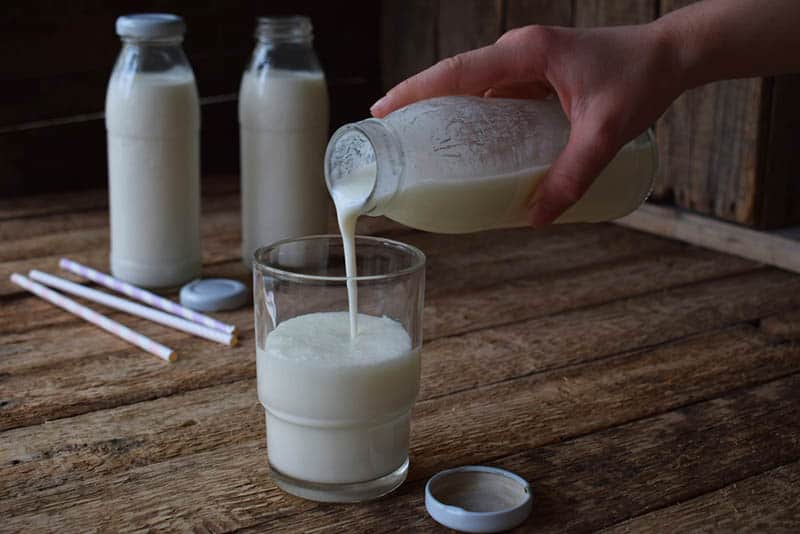
Probiotics are an important part of daily nutrition at times when our bacterial flora is weak and needs a little pick-me-up, especially after having to deal with a bout of the stomach flu or after a long period of unhealthy eating.
Luckily for us, that’s where kefir comes in to save the day.
Not only does it help cover the daily dairy intake given that it’s a fermented milk beverage, but it also doubles as a probiotic to help nourish the beneficial intestinal bacteria back to health.
And, it’s safe for consumption for pregnant women. In fact, it helps alleviate any potential risks of premature birth and even helps prevent preeclampsia in some cases.
If kefir doesn’t tickle your taste buds, you can simply go for yogurt as an alternative to probiotics instead – it has most of the same benefits.
4. Electrolyte-rich sports drinks
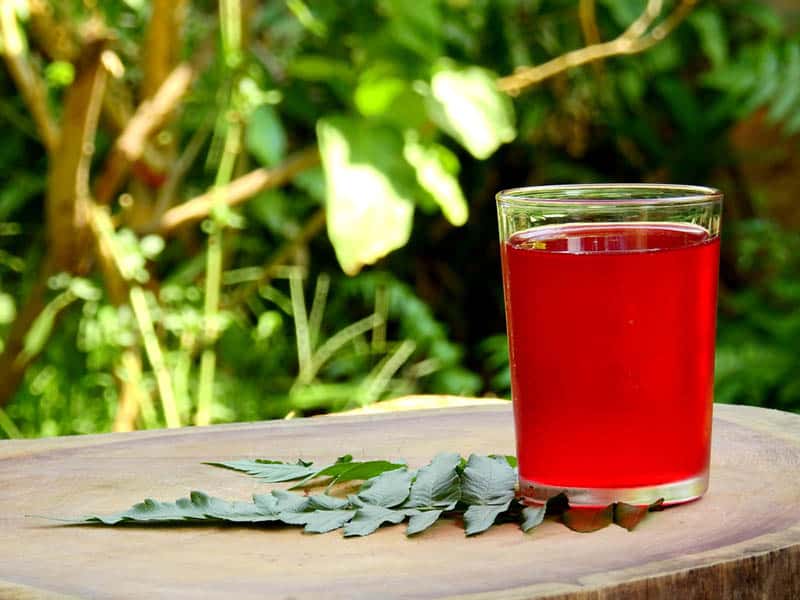
While normally not recommended, sports drinks can be a best friend (at least the ones that don’t have too much caffeine in them) for people who have to deal with special circumstances.
They offer an alternative to saline solution for pregnant women who have trouble absorbing water back into their system after stomach flu, diarrhea, or other forms of severe dehydration.
Electrolytes serve as a bonding agent which helps us absorb water into our system properly. Sports drinks allow us to retrieve that water through a more palatable way rather than going through unpleasantly warm and salty saline solutions.
Do keep in mind to only buy ones that have minimal to no caffeine in them because there’s only so much you can consume before it becomes harmful for your little one.
A good example of one is Gatorade, a brand that is widely available and very healthy to drink every now and again – just don’t overdo it.
5. Healthy smoothies
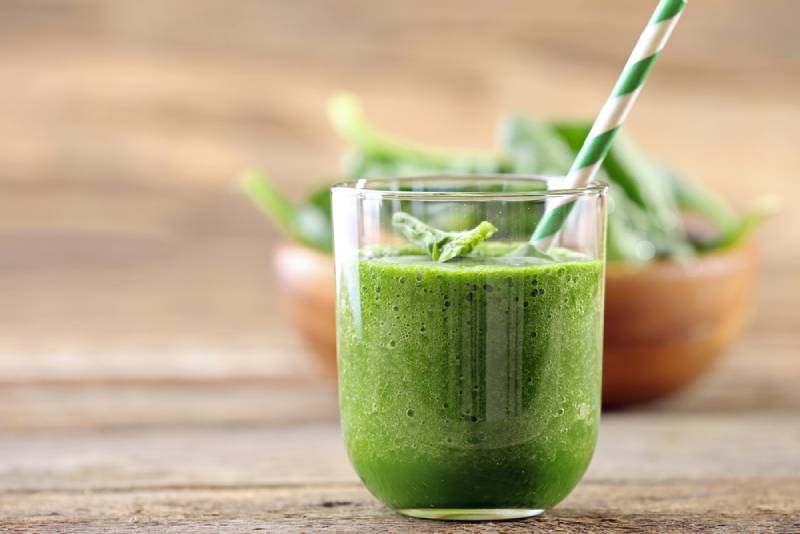
Now, having to go through the list of all the recommended doses of everything can be a real pain, especially when it comes to fruits and veggies.
I remember just how much I hated having to go through so much food just to meet some sort of daily quota.
My jaw would simply feel numb from all the constant chewing so even healthy dishes ended up having to be forced down.
But, smoothies help alleviate this issue by allowing us to mix a variety of fruits and veggies together without losing out on any benefits and then just drinking them down like any other juice or liquid.
And of course – there is the added benefit of that wonderful chill that gives you an extra dose of freshness to help you feel better throughout the day.
So, if you ever find yourself wanting to reach that daily recommended dose of fruits and veggies, but also don’t want to eat them, find a few good smoothie recipes and make one instead.
6. Herbal tea
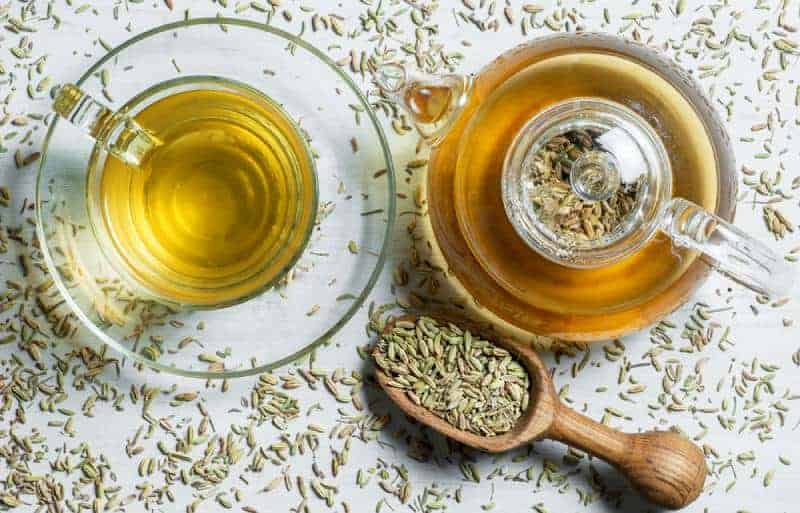
Another great choice when picking what to drink when pregnant is a nice warm cup of herbal tea.
However, not all teas are safe for consumption during pregnancy as they can end up causing more problems than the help they provide.
A good example of this is cranberry tea which might end up inflaming your uterine tract.
Aside from the above, any form of herbal tea that’s made at home or bought from an alternative medicine store is also risky as they tend to have a higher herbal content in them, one that exceeds the recommended daily amounts.
But, they aren’t all bad; there are plenty of extremely good options depending on what you need.
Chamomile and lemon teas for instance have a nice calming effect to them that helps you mellow out and relax.
Plus, the chamomile can help dissolve any trapped gas and get your digestive system moving again if you’re having issues with constipation.
Do note that you should avoid drinking chamomile tea during your first trimester as it’s known to cause contractions during it.
On the other hand, ginger is a good way to stave off morning sickness, or at least dull its effects.
Peppermint does the same, but too much peppermint tea might end up affecting your overall milk supply later down the line so, personally, I’d temper the use of it.
Speaking of which, if you’re looking for some teas to exclusively help with breastfeeding, you might want to look at ones that have galactagogues such as mother’s milk fenugreek, milk thistle, coriander, and anise.
This way you can preemptively start preparing for the postpartum period and onward.
7. Lemonade
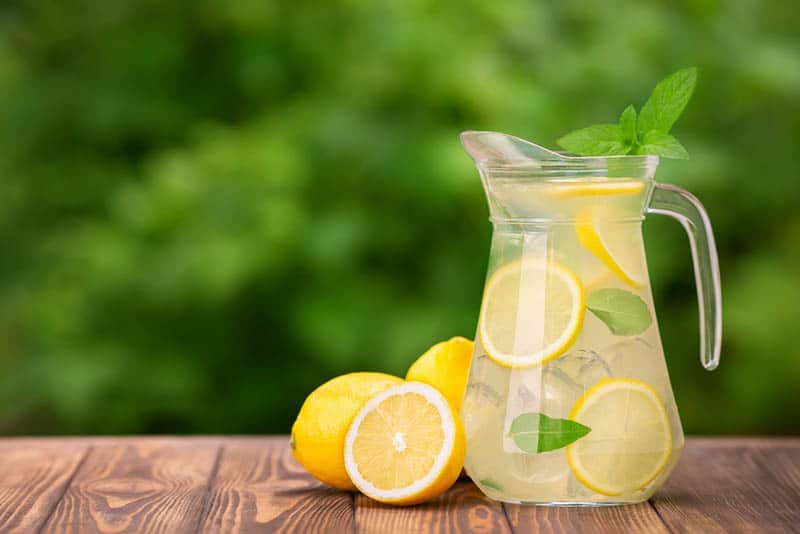
Lemons aren’t just good in the form of herbal tea, they’re also fantastic in other, more cooled down forms of refreshment such as lemonade.
They are, in general, good for reducing the effects of nausea and morning sickness – that’s why putting a few drops of lemon in your water makes it easier to swallow.
But, the best way of getting a few lemons into your system is by making lemonade.
Although, it is important to remember that your lemonade shouldn’t have sugar and the lemons must be washed prior to the squeezing to get rid of any potentially harmful bacteria that may be on the peel.
The alternative is to boil the lemonade to pasteurize it before cooling it down if you really want to go down that route, but it is a lot of extra work.
Whichever method you choose, you won’t regret that tangy and refreshing, tall, cool glass of lemonade!
8. Bone broth

This might seem like a really weird thing to consider drinking so casually, and it was for the longest time, until 2020 when it became the go-to pregnancy drink.
This is mostly due to the fact that broth is usually recommended by doctors to help ease the effects of morning sickness and nausea during pregnancy.
It also helps when dealing with a loss of appetite as it somewhat bypasses that problem by being a drinkable source of most of the necessary daily nutrients.
And most of it comes from cooked off bone marrow, the best of which is said to be that of beef bones.
9. Carrot juice
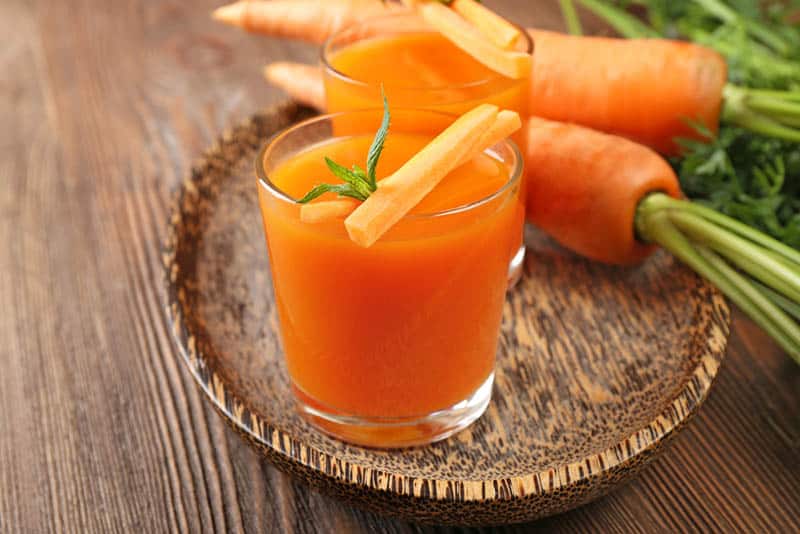
Orange juice isn’t the only ‘orange’ juice that’s good for you, carrots are a healthy alternative too.
That’s because carrots are rich in all sorts of vitamins, nutrients, and antioxidants, namely calcium and vitamins C, A, and E, each of which play vital roles in promoting healthier bodily function.
The one downside is that not a lot of places sell carrot juice individually, not pasteurized at least and the pasteurized ones usually come in a mix of stronger fruits.
That’s why you’ll have to fire up that juicer of yours to get what you need, but make sure to clean the carrots before you start and pasteurize the juice after by boiling it and allowing it to cool down afterward.
Then, when it’s all done, you can finally enjoy your healthy cup of a very tasty veggie juice.
10. Seltzers and mineral water
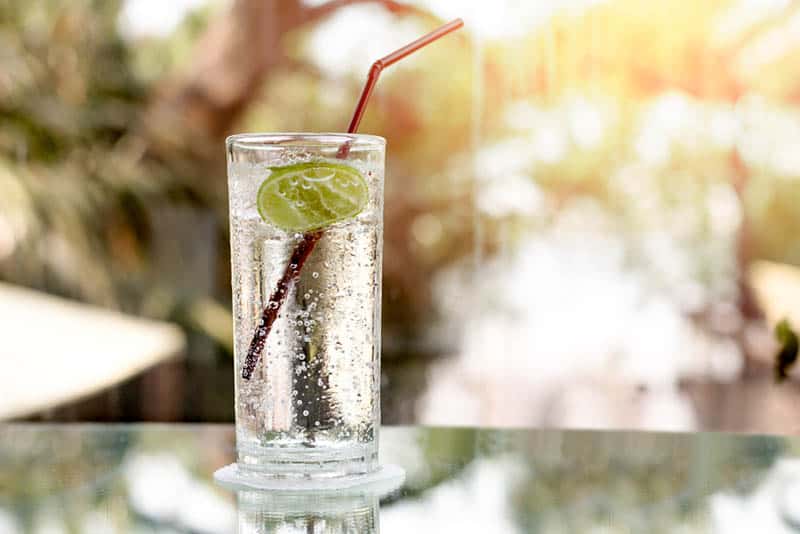
While carbonated soft drinks might not be recommended for pregnant mothers, regular carbonated water is the opposite.
While a daily intake is not recommended, the bubbles from the drinks may provide a soothing effect on your intestines, helping with digestion, the feeling of being bloated, as well as different forms of nausea and morning sickness.
Too much of it might have the opposite effect and end up making you sick, but as long as you sip it slowly and don’t drink too much, too often, you should be fine.
11. Coconut Water
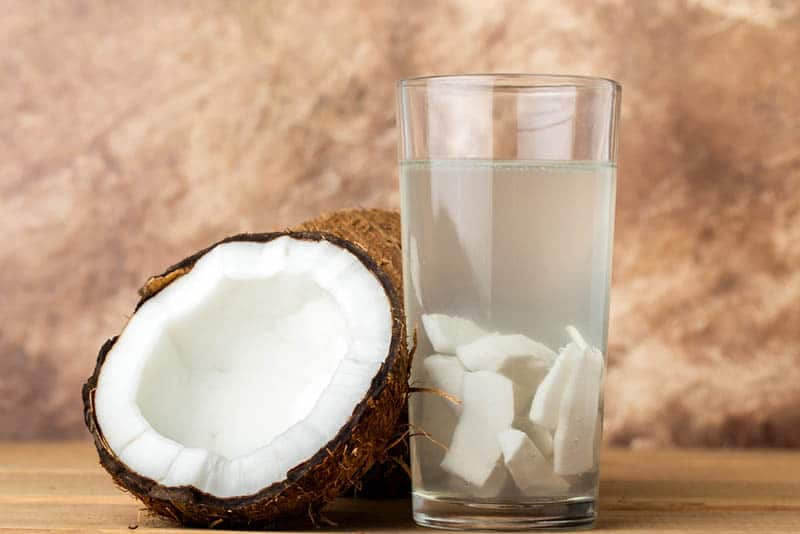
And, lastly, on the list of what to drink when pregnant, is the slightly pricier, but very beneficial option of coconut water.
It functions in a similar vein to lemon water by helping stave off nausea and morning sickness, but it also contains electrolytes much like sports drinks do so it can help with rehydrating your body as well.
Not only that, but it also serves as a healthy alternative to sugar, helping keep you refreshed and energized throughout the day.
That said, while it may seem perfect, it does have one disadvantage and that’s the fact that it may end up lowering blood pressure.
So, any of you pregnant mammas out there with dangerously low blood pressure might want to skip this one.
Before you opt for the coconut water craze, you should definitely consult your doctor, obstetrician, nutritionist, or any other certified health care professional on whether or not you should be taking it in the first place.
If they give you the green light, know that usually, you should only have one cup of it early in the morning, to help maximize absorption and its overall effectiveness.
10 Drinks To Avoid While Pregnant
Now that we’ve gone through some of the good drink choices for during pregnancy, it’s time to look at the other side of the coin, the definitively poor options.
1. Untested tap water
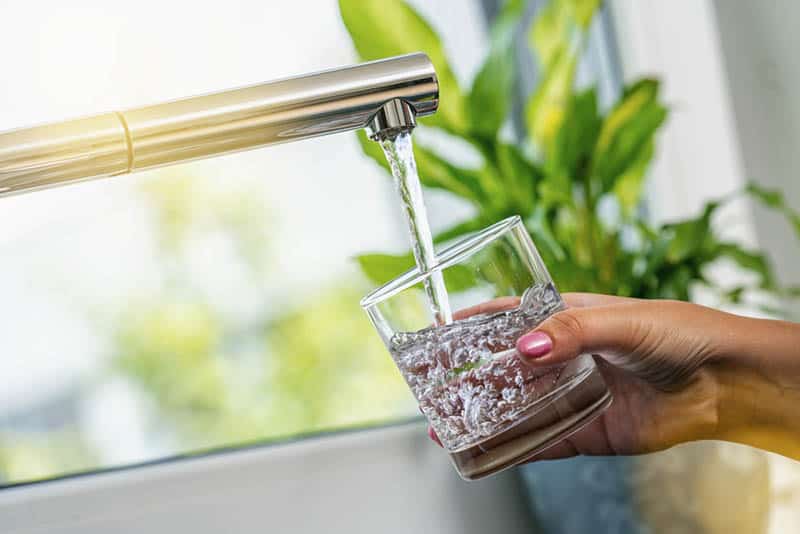
While hydrating is important, as stated previously, it must be done with untainted water.
While many of our states have safe and drinkable tap water, it might not always be the case.
It depends on where you live and your own household.
While you’re less likely to be in a place with no access to clean drinking water, you might have a different issue – lead pipes.
If you’re living in a very old home and your water delivery system hasn’t been updated in a while, chances are you still have lead piping.
Traces of this lead are likely to wind up in the water, tainting it and causing all sorts of potential birth defects such as low birth weight, and a variety of issues related to mental health and the development of the child.
It can even cause premature birth in some serious cases which comes with its own set of complications and problems.
Now, replacing the pipes themselves would cost a fortune, a fortune you probably don’t have at the moment nor would all the construction work do you any good when you’re trying to relax during your pregnancy.
Instead, the best solution is to get a water filter, and none of those pitcher-style filters either as they end up taking more space in the kitchen and are also weaker than the filter you attach directly to the faucet.
Believe me, it’s a much cheaper workaround than having to deal with replacing the piping.
The other alternative is to change over to drinking bottled water.
However, while it’s a cheaper alternative at the start, this method is both going to produce a lot more waste because of all the bottles and it’s going to get really expensive, really fast in the long term.
That’s why the most cost-effective option is ultimately getting a water filter installed on your faucet(s) as a more expensive initial investment, but one that pays off greatly in the long term.
2. Sugary and soft drinks

It’s no secret that sugary drinks are bad for our overall health, but that’s not completely true.
Natural sugar is beneficial if taken in moderation, but overdoing it really won’t do your child any favors with regards to nutrition.
It’s also worth mentioning that if you end up developing any type of gestational diabetes during your pregnancy period, you should stay away from sugar in any form, be it food or drink.
As far as soft drinks are concerned, they pose an entirely different problem.
Firstly, there’s the caffeine content which already places limits on the consumption of them, but there’s also another threat to your health and the health of your child which comes in the form of artificial sweeteners.
For your unborn child, it’s the problem of increased risk of obesity in childhood and all the other problems that arise from that.
Meanwhile, on the mother’s side, the risk is an increased chance of inducing premature labor, which, again, poses issues for both the mother and the baby.
And no, getting the diet version of a soft drink doesn’t help alleviate that since it still contains the harmful substances, so be careful what you end up drinking and treat sodas as a luxury if not omitting them altogether.
3. Energy drinks
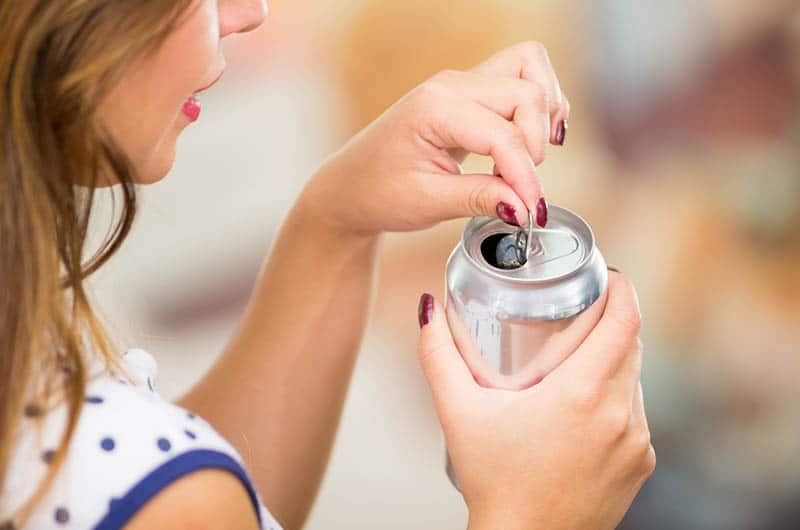
Given the increased needs, be it for food, drinks, or just overall energy, you may find yourself tired more often than not – especially if you’re not someone used to living an overly active lifestyle.
This only becomes worse now that you’re very limited on your caffeine intake and you might think that an energy drink is a viable alternative, but it sadly isn’t.
While many of them taste sweet, they’re all based on rather high amounts of caffeine, even more so than actual coffee.
Not to mention that none of the other ingredients that various kinds of energy drinks have are regulated. This is because energy drinks aren’t counted as actual drinks, but rather food supplements.
And, many of these other ingredients are unlikely to have been tested for compatibility with pregnant women, so it’s best to stay far away from them.
If you’re having issues with exhaustion and fatigue, consider having more than the usual 8 hours of sleep if you can, or just take it easy.
Enjoy a more relaxed lifestyle to conserve energy or eat some refreshing foods like avocados and peanut butter which are also rich in other healthy vitamins and nutrients.
Believe me when I say that a healthier diet is going to help keep exhaustion away better than any energy drink or pot of coffee ever could.
4. Drinks made out of wheatgrass
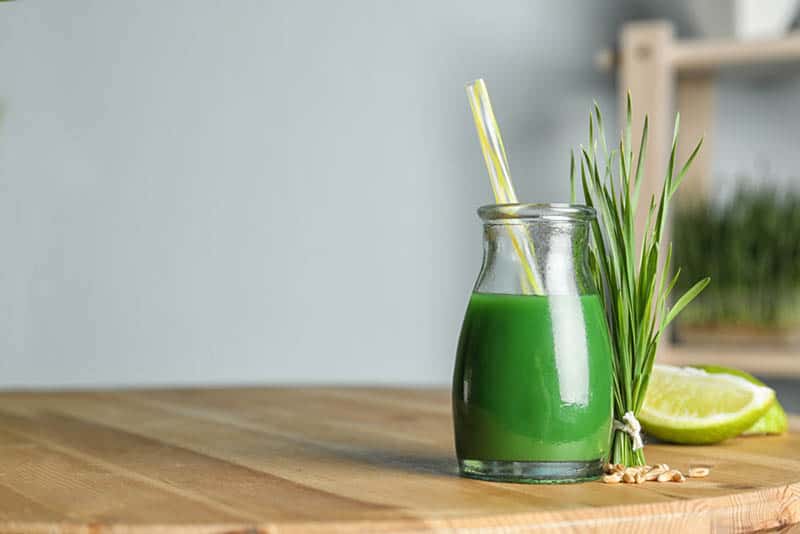
While it might sound odd to some, wheatgrass juice has been a health trend for quite a while now and is regarded as a very healthy super-drink. Think the most recent Kale fad but in juice form.
While its many beneficial health properties do exist, there’s also the very real risk of it introducing harmful bacteria to your body because the harvesting process of wheatgrass usually involves it being picked and processed raw.
And, its natural growth habitat is in damp and wet places which leaves an increased chance of it being a breeding ground for said bacteria and even mold, neither of which you’d want in your system.
There are even claims of it posing an increased risk of miscarriages in pregnant women which only further overshadows its many health benefits.
So, if you’re someone who likes trying all of these new health fads, it might be better to wait until your pregnancy finishes to give them a go.
I’d personally suggest leaving anything new and not completely tested foods and drinks to others and waiting for the results.
5. Kombucha
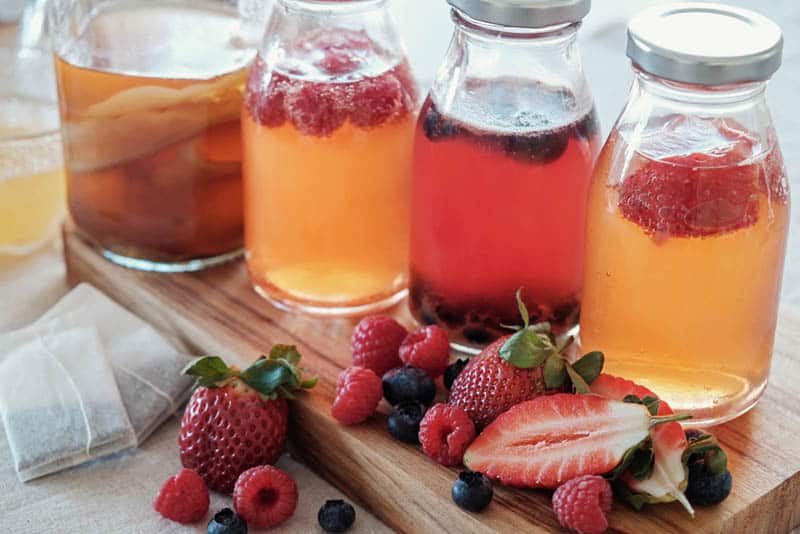
A great example of a drink that might seem safe, but really isn’t is kombucha.
While this fermented tea is praised for its many health benefits and rather lovely taste, it contains traces of alcohol, it’s unpasteurized, and is made from caffeinated teas.
A triple threat of unwanted items to drink when pregnant and thus three times as dangerous to your overall health and the health of your future child.
Avoid it entirely, no matter how much someone tries selling it to you as a good pregnancy drink. If you’re wondering whether kids can drink kombucha, proceed with caution as well.
6. Caffeinated tea, drinks, and coffee in general
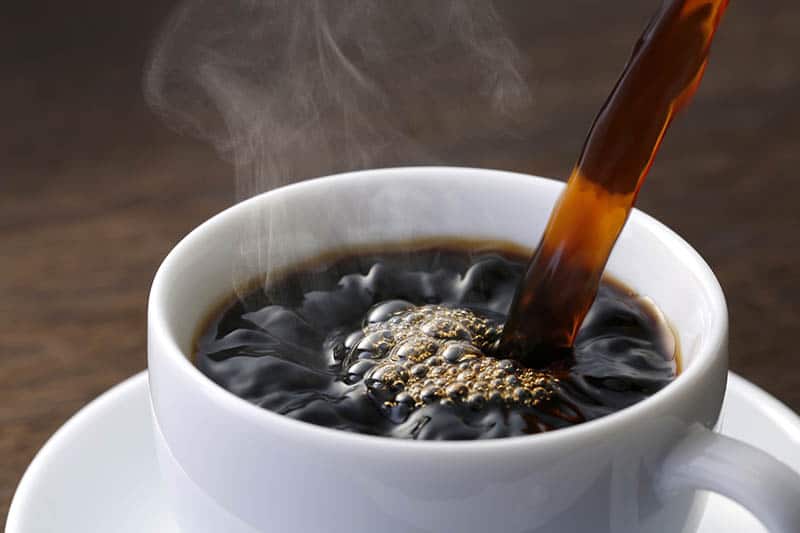
While approximately 200-250mg of caffeine is considered to be a safe daily allowance of sorts for a pregnant woman, it’s still best to avoid the substance as much as you can.
Caffeine is not just found in coffee alone. You can find it in some energy drinks, several herbal teas, various forms of medication, and even some types of chocolate.
But, why is it a problem?
While not an issue for the mother herself, it becomes a problem for her unborn child.
That’s because the little one’s body lacks the physical capability to properly process the caffeine and metabolize it.
It then ends up accumulating in his system which can lead to various sleep disorders, bouts of hyperactivity, and other potential problems in mental development down the line.
Any excess above the 250 mg allowance (300 for some moms) ends up being absorbed through the placenta and goes directly to the child.
That’s why I would recommend not playing around with caffeine because you may just end up inadvertently going over the limit by consuming it through a different source.
7. Alcohol

I doubt this one needs much explanation – it’s well known that too much alcohol can negatively impact a person and their liver.
Well, in a mom’s case, any amount of alcohol can be really bad, not just for the child’s sake, but for hers as well.
It can cause many potentially problematic developmental disorders in a child.
Some of the most widely known ones are fetal alcohol spectrum disorders, also known as FASD or fetal alcohol syndrome.
These normally include some deformations in the baby’s facial structure, namely a thin upper lip, smaller eye openings, lower birth weight, as well as a lower height in general throughout life, damage to the central nervous system, and many others.
I’m sure I don’t need to go down the list any further to emphasize that drinking alcohol during pregnancy is bad and that the thought should never even be considered.
Be patient for those 9 months and use alternative methods of relaxation and enjoyment. You can start indulging yourself after a few weeks postpartum.
8. Freshly squeezed fruit juices and raw milk
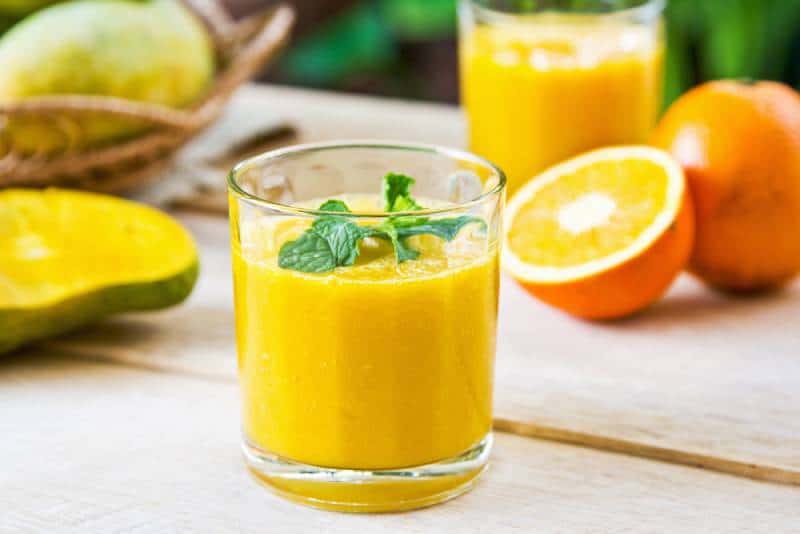
While fruits are incredibly good for you and rich with vitamins and minerals, they still need to be pasteurized, as mentioned earlier.
Fruit juice that’s been freshly squeezed and unpasteurized means that it’s more likely to contain potentially harmful bacteria.
This bacteria could take you on a rough ride which is something you most certainly want to avoid during pregnancy.
Luckily for us, most of the packaged juices you find on the shelves is pre-pasteurized, but you should double check just in case.
While the freshly squeezed stuff might taste better it’s not worth risking your health over.
In the same vein, you never want to be drinking raw, unpasteurized milk due to the horrid bacteria that can be found in it, namely ones that cause salmonella and listeriosis.
Both of these can have very debilitating consequences for both your health and the health of your unborn child.
That milk is meant for the young of the animals it comes from, it’s much safer for us to drink the pasteurized version that has had all of the harmful bacteria burned out of it.
9. Tonic water
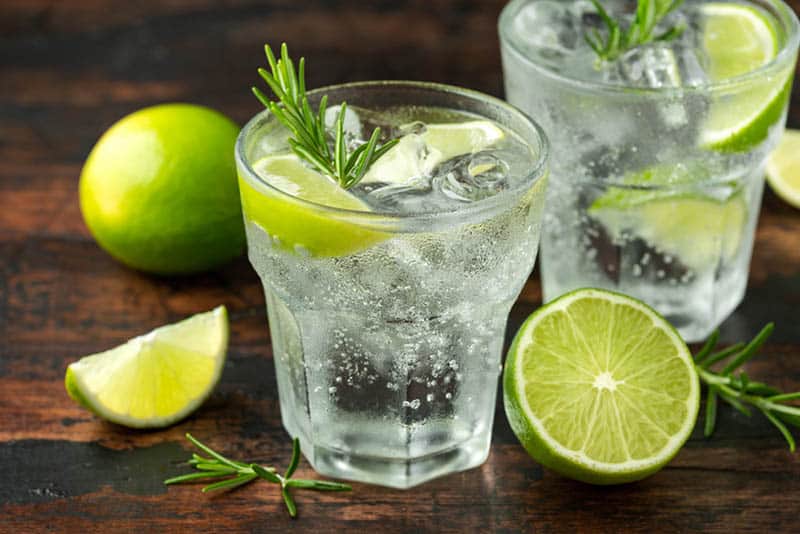
It is quite rare, but I do know some women prefer the bitter flavor of a bit of tonic water.
That bitterness comes from a substance called quinine. It was used to fight malaria, but it has shown that it has the potential, when consumed in large amounts, to cause some birth defects.
Today’s drinks carry a much safer amount of it, so much so that you’d need to drink a liter of tonic water a day to be in any danger.
But, should you somehow manage to cross this threshold, the excess quinine will get absorbed through the placenta and go straight into your little one’s bloodstream.
10. Unpasteurized eggnog
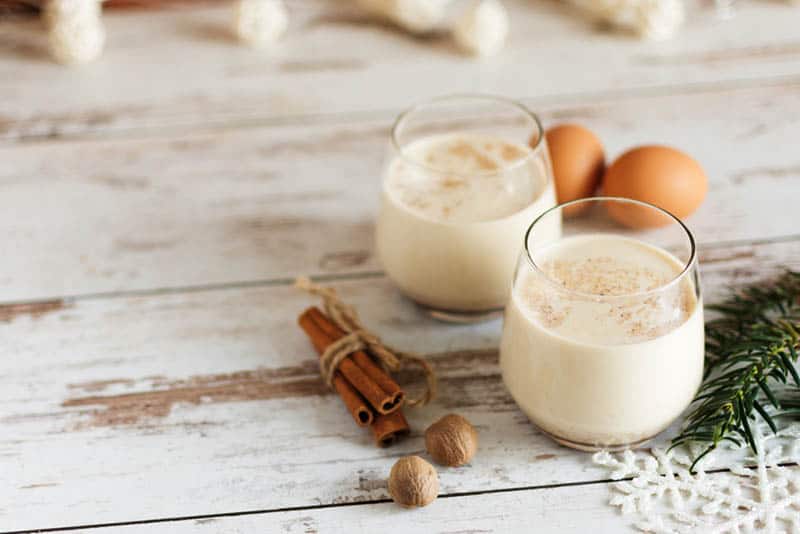
And finally, we have an item that’s only really relevant if you’re going through your pregnancy period in the winter as eggnog is very much a Christmas period drink.
But, why is it bad? Sure, it’s sweet, but not enough to cause any harm, and it doesn’t have to be mixed with alcohol like some people tend to.
The problem is with the other main ingredient of the tasty concoction, the eggs.
Because the whole thing is based on eggs, raw eggs in particular, there is a chance that these eggs might contain salmonella and you might end up contracting it which is never going to be a fun time.
Not to mention that aside from the almost crippling symptoms that anyone with salmonella poisoning experiences, there are also potentially fatal complications.
If you still want to consume it, make sure to pasteurize the homemade stuff by boiling it first to kill any potentially harmful salmonella bacteria.
Or, if you want to skip all that extra work, simply get some store-bought, pasteurized eggnog and enjoy it without the stress of harming your unborn little one.
The Summary
When wondering what to drink when pregnant it’s usually best to stick to water as a base and then spice it up every now and then with one of the good drinks listed in this article while avoiding the bad ones.
It’s also worth repeating that your other safest and most beneficial go-tos are pasteurized items like pasteurized milk and pasteurized orange juice for the added benefits of calcium and vitamin C that help keep you and your baby healthy.
While I couldn’t list every possible type of drink here, I believe I’ve covered enough for all of you to gather the necessary knowledge on what to drink and what to avoid.
If you find something that’s not on the list, before buying it, I suggest looking at the ingredients to see if it contains any potentially harmful chemicals, or substances, or to determine if the drink has the potential to cause bacterial infection.
And, as always, each mamma is unique – not every drink is going to sit well with every mom, so make sure to seek advice from your local doctor, obstetrician, nutritionist, or any other certified health care professional.
They’re the ones who can help suggest a healthy diet for you, both food and drink wise, based on your eating habits and the state of your pregnancy without putting either you or your soon-to-be little one in any danger whatsoever.
Stay safe and stay healthy. You’ll get through this pregnancy in no time, mamma.
Like this post? Please share or pin it for later. You can also stay in the loop and follow us on Facebook, Instagram or Pinterest.

This post contains affiliate links. Please see our full disclosure for more info.

